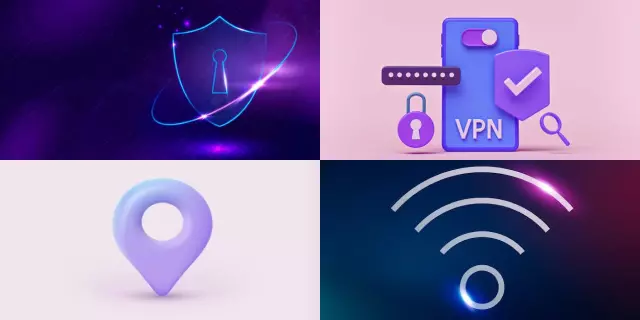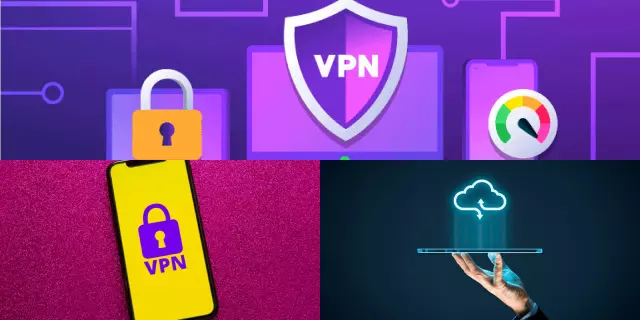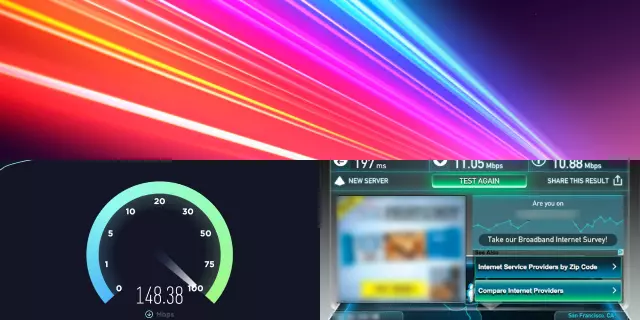Introduction to Checking the Effectiveness of Your VPN
A Virtual Private Network (VPN) is designed to protect your online privacy and security by encrypting your internet traffic and hiding your IP address. However, sometimes a VPN may not be working as expected and you may wonder if it’s really doing its job. In this scenario, checking the effectiveness of your VPN is crucial to ensure that your online activities are protected.
There are several ways to check the effectiveness of your VPN, including verifying the encryption level, checking for IP and DNS leaks, and testing the speed and performance of the VPN connection. Understanding how to check the effectiveness of your VPN will help you ensure that your online privacy and security are not compromised.
Why Checking Your VPN’s Functionality is Important
Checking the effectiveness of your VPN is an important step in ensuring the privacy and security of your online activity. A VPN, or virtual private network, encrypts your internet connection and hides your online identity. However, if your VPN is not functioning correctly, you may still be vulnerable to hacking, cyber attacks, and online surveillance. By regularly checking the functionality of your VPN, you can confirm that your internet connection is encrypted, your IP address is hidden, and that your online activity is protected. This includes checking for IP and DNS leaks, as well as verifying that your VPN is connected to the right server and that your internet speed is not being negatively affected. Regular checks can help ensure that you are using a secure and reliable VPN.
Common Signs of a Non-Working VPN
There are a few common signs that indicate that your VPN may not be working properly. Firstly, if you are unable to access websites or online services that are normally available in your region, this may be an indication of an issue with your VPN. Secondly, if your internet speeds are slower than usual, this may also indicate that your VPN is not functioning effectively.
Another sign of a non-working VPN is if you receive a geo-restriction error message, which indicates that your device’s IP address is not being masked properly. Finally, if you are unable to connect to your VPN server at all, this may indicate that your VPN provider is experiencing technical difficulties or that your account is not properly configured.
Testing Your VPN’s Connection and Speed
Testing the connection and speed of your VPN is crucial to ensure that it is functioning properly. There are several online tools available to test the speed of your VPN connection. Additionally, you can also check the ping time and server stability to determine the overall performance of your VPN. It’s important to perform regular checks to make sure that your VPN provider is delivering on their promises, such as unlimited bandwidth and fast speeds. A slow and unreliable VPN connection can ruin your online experience and put your privacy and security at risk. Make sure to choose a reputable VPN provider and test their connection and speed regularly to ensure that you are getting the most out of your VPN.A VPN (Virtual Private Network) can be a valuable tool for safeguarding your online privacy and security. However, a poorly performing VPN can be frustrating and even render it ineffective. That’s why it’s important to test your VPN’s connection and speed regularly.
One way to test your VPN’s connection is to run a DNS leak test. This will ensure that your internet traffic is going through the VPN and not leaking outside of it. You can also use online speed tests to check the speed of your VPN connection. These tests will measure the download and upload speeds of your internet connection while connected to the VPN.
It’s important to note that your VPN’s speed may vary depending on the server location you choose. So, if you’re experiencing slow speeds, try connecting to a server in a different location.
By regularly testing your VPN’s connection and speed, you can ensure that it’s performing optimally and protecting your online activities effectively.
Checking Your IP Address to Verify VPN Connection
Verifying your VPN connection is essential to ensure that it is functioning properly and providing you with the desired privacy and security. One of the simplest ways to check if your VPN is working is by checking your IP address. Your IP address can reveal your location and online activities, so when you connect to a VPN, it should mask your real IP address with the IP address of the VPN server.
To check your IP address, you can visit websites that display your IP information. This should show the IP address of the VPN server, indicating that your VPN connection is working and your online activities are protected. It’s important to regularly check your VPN connection to make sure it is functioning correctly, especially if you’re accessing sensitive information or engaging in activities that require privacy and security.
Verifying Your VPN’s Encryption and Security
Verifying the encryption and security of your VPN connection is crucial in ensuring that your online activities are protected. To do this, you can use online tools to check if your VPN is hiding your IP address and encrypting your data. Additionally, you can check the VPN provider’s privacy policy and their logging policy to see if they keep track of your online activities. It is also recommended to use a VPN that uses robust encryption protocols like OpenVPN or IKEv2 to guarantee the privacy of your data. Furthermore, using a VPN with a strict no-logging policy can provide extra peace of mind when it comes to privacy and security.
Final Thoughts on Regularly Checking the Functionality of Your VPN
Regularly checking the functionality of your VPN (Virtual Private Network) is crucial for ensuring that your online activities are secure and private. A VPN can protect your online privacy and safeguard your data from cybercriminals, but it’s not foolproof. VPNs can sometimes have technical issues, and their performance can vary depending on a variety of factors.
By periodically checking the functionality of your VPN, you can identify any potential issues before they become a serious problem. Testing your VPN’s connection and speed, as well as checking for DNS leaks, are some ways to ensure that your VPN is working as it should. If you notice any problems, you can troubleshoot them or contact your VPN provider for support.
In conclusion, regularly checking the functionality of your VPN is a simple yet important task that should not be overlooked. It’s a small effort that can provide big rewards in terms of keeping your online activities secure and private.



